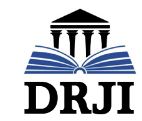THE USING OF CHATGPT IN DEFORMITY OF ESP MATERIAL FOR HEALTH STUDENTS IN THE HIGHER EDUCATION
Abstract
The use of ChatGPT in developing teaching materials can be used to adjust the needs of ESP teaching materials. Artificial Intelligence (AI) in education has brought significant changes, especially in the development of English for Specific Purposes (ESP) materials. This study explores the use of ChatGPT, a generative AI tool, in redesigning and supporting the creation of ESP learning content for health students in higher education. Using a qualitative literature study approach, this study examines the opportunities, benefits, and challenges in implementing ChatGPT in the ESP context. The results of the study indicate that ChatGPT offers several advantages, such as time efficiency in material development, the ability to adjust content to learners' needs, support for interactive and contextual learning, and assistance in the assessment process. However, there are also challenges such as the potential for inaccurate information, limitations in sensitivity to certain areas, and the need for human validation. This study concludes that although ChatGPT cannot replace the role of educators, this technology can be a valuable tool in modern ESP teaching in the health field. Further empirical research is needed to evaluate the long-term impact on students' learning outcomes and professional language competencies.
Keywords
Full Text:
PDFReferences
Abdelhafiz, A. S., Farghly, M. I., Sultan, E. A., Abouelmagd, M. E., Ashmawy, Y., & Elsebaie, E. H. (2025). Medical students and ChatGPT: analyzing attitudes, practices, and academic perceptions. BMC Medical Education, 25(1), 187. https://doi.org/10.1186/s12909-025-06731-9
Cha, J. (n.d.). CHOP: Integrating ChatGPT into EFL Oral Presentation Practice. ArXiv HumanComputerInteraction.(2024)https://arxiv.org/abs/2407.07393?utm_source=researcher_app&utm_medium=referral&utm_campaign=RESR_MRKT_Researcher_inbound
Chan, S. M. H., Mamat, N. H., & Nadarajah, V. D. (2022). Mind your language: the importance of english language skills in an International Medical Programme (IMP). BMC Medical Education, 22(1), 1–7. https://doi.org/10.1186/s12909-022-03481-w
Gayessa, T. G., & Mohammed, N. (2024). Assessing health science students’ English language lacks: learners’ needs analysis. ELT Forum: Journal of English Language Teaching, 13(1), 1–15. https://doi.org/10.15294/elt.v13i1.74952
George Pallivathukal, R., Kyaw Soe, H. H., Donald, P. M., Samson, R. S., & Hj Ismail, A. R. (2024). ChatGPT for Academic Purposes: Survey Among Undergraduate Healthcare Students in Malaysia. Cureus, 16(1), 1–18. https://doi.org/10.7759/cureus.53032
Glahn, K. (2024). Using ChatGPT to Teach English for Academic Purposes. Journal of Education, Innovation and Communication, 5(2), 63–75. https://doi.org/10.34097/jeicom-5-2-december-23-5
Halimatussakdiah, & Munazar. (2021). A Need Analysis of Learning English For Nutrision Department Student. Jurnal Kesehatan Ilmiah , 14(2), 170–178. http://ejournal.poltekkesaceh.ac.id/index.php/jn
Han, J., Yoo, H., Kim, Y., Myung, J., Kim, M., Lim, H., Kim, J., Lee, T. Y., Hong, H., Ahn, S. Y., & Oh, A. (2023). RECIPE: How to Integrate ChatGPT into EFL Writing Education. In L@S 2023 - Proceedings of the 10th ACM Conference on Learning @ Scale (Vol. 1, Issue 1). Association for Computing Machinery. https://doi.org/10.1145/3573051.3596200
Hasanein, A. M., & Sobaih, A. E. E. (2023). Drivers and Consequences of ChatGPT Use in Higher Education: Key Stakeholder Perspectives. European Journal of Investigation in Health, Psychology and Education, 13(11), 2599–2614. https://doi.org/10.3390/ejihpe13110181
Ibrahim, H. H. (2020). Needs Analysis as a Prerequisite for Designing an ESP Course for Medical Students. Open Journal of Modern Linguistics, 10(02), 83–103. https://doi.org/10.4236/ojml.2020.102006
Jo, H. (2024). From concerns to benefits: a comprehensive study of ChatGPT usage in education. International Journal of Educational Technology in Higher Education, 21(1). https://doi.org/10.1186/s41239-024-00471-4
Juni, R. W. (2025). Pemanfaatan ChatGPT sebagai Alat Bantu Penyusunan Bahan Ajar Bahasa Indonesia di SMA 3 Parepare. 11(2), 1710–1735.
Laili, R. N., Wirawati, W. A., Nashir, M., & Language, E. (2025). Student ’ s Perception on the Use of Artificial Intelligence ( AI ) ChatGPT in English Language Learning : Benefits and Challenges in Higher Education. 1389–1403. https://doi.org/10.47709/educendikia.v4i03.
Language Learning for Healthcare Professionals_ Why It Matters _ Babbel for Business. (n.d.).2025. https://www.babbelforbusiness.com
Naamati-Schneider, L. (2024). Enhancing AI competence in health management: students’ experiences with ChatGPT as a learning Tool. BMC Medical Education, 24(1), 1–16. https://doi.org/10.1186/s12909-024-05595-9
Purwana, R., Mariana, Chaniago, A. D., & Asrul. (2023). Pengaruh Keterampilan Bahasa Inggris terhadap Kinerja Apoteker dalam Pelayanan Farmasi. Jurnal Ilmu Kesehatan Mandiri Cendikia, 2(6), 39–47. https://journal-mandiracendikia.com/jikmc
Rinawati, R., Trisnadi, S., & Murwantono, D. (2022). Needs Analysis of English for Medical Purposes: A Student Perspective. Language Circle: Journal of Language and Literature, 16(2), 348–356. https://doi.org/10.15294/lc.v16i2.35445
Saud, J. (2025). Perception of Healthcare Professionals on the Importance of English Training in Medical Contexts. 152–162. https://doi.org/10.55637/jr.11.1.11414.152-162
Schkinder, K. (2024). The crucial role of English language in intercultural communication within global healthcare. International Science Journal of Education & Linguistics, 3(1), 63–68. https://doi.org/10.46299/j.isjel.20240301.07
S.Mustari. A. C. (2024). REFLECTIONS ON USING CHATGPT TO GENERATE ESP MATERIALS . A CASE REFLECTIONS ON USING CHATGPT TO GENERATE ESP (Issue December). https://doi.org/10.24193/subbphilo.2024.4.02
The Importance of English in Global Health Communications - 5 Minute English. (n.d.).2025 https://5minuteenglish.com
Williams, C. (2014). The future of ESP studies: building on success, exploring new paths, avoiding pitfalls. ASp, 66, 137–150. https://doi.org/10.4000/asp.4616
Zaib, M., Sheng, Q. Z., Zhang, W. E., & Mahmood, A. (2023). Keeping the Questions Conversational: Using Structured Representations to Resolve Dependency in Conversational Question Answering. Proceedings of the International Joint Conference on Neural Networks, 2023-June(Ml). https://doi.org/10.1109/IJCNN54540.2023.10191510
Zaidi, H., & Al Jadaan, O. (2022). Students’ Linguistic Skills and Problems in Learning Medical Vocabulary At a Health Sciences University in the Uae. European Journal of Education Studies, 9(6), 90–104. https://doi.org/10.46827/ejes.v9i6.4330
DOI: https://doi.org/10.46576/ijsseh.v6i2.6973
Article Metrics
Abstract view : 358 timesPDF – 115 times
Refbacks
- There are currently no refbacks.
Copyright (c) 2025 Neni Triana, neni triana

This work is licensed under a Creative Commons Attribution-NonCommercial-ShareAlike 4.0 International License.
Dharmawangsa International Journal Indexed by:
Member Of :
Dharmawangsa: International Journal of the Social Sciences, Education and Humanitis Published By:
UNIVERSITAS DHARMAWANGSA
Alamat : Jl. K. L. Yos Sudarso No. 224 Medan
Kontak : Tel. 061 6635682 - 6613783 Fax. 061 6615190
Email : dharmawangsajournal@dharmawangsa.ac.id
Dharmawangsa:International Journal of the Social Sciences, Education and Humanitis by Universitas Dharmawangsa Medan is licensed under a Creative Commons Attribution-NonCommercial-ShareAlike 4.0 International License.
Based on a work at: https://jurnal.dharmawangsa.ac.id/index.php/dharmawangsa/index

11.jpg)
















